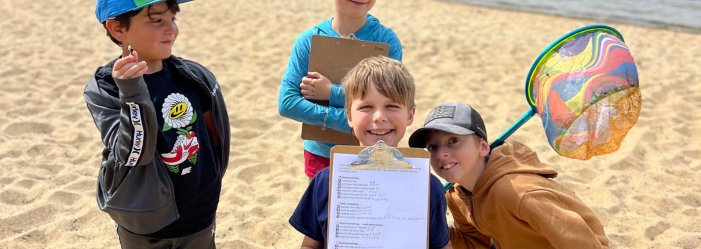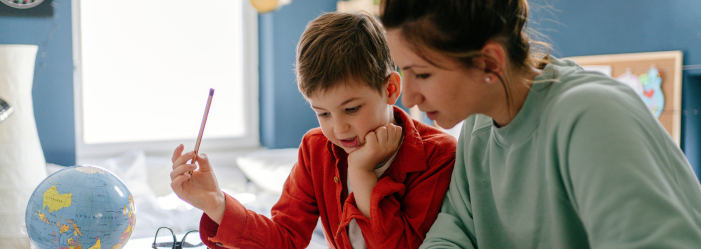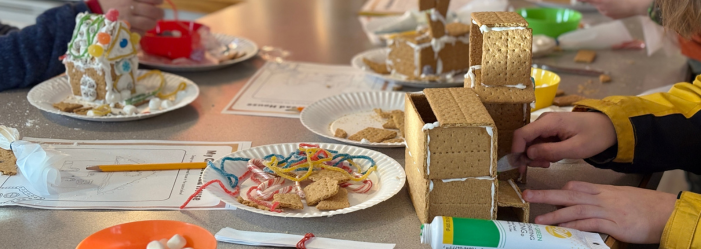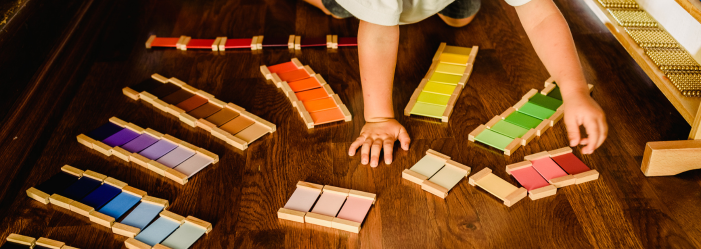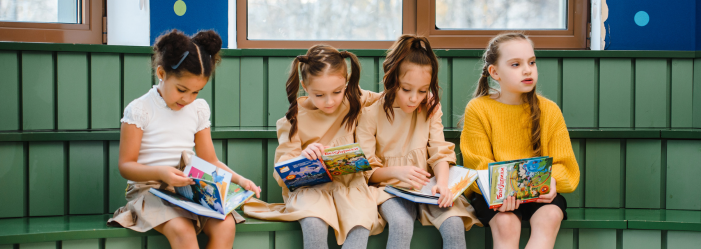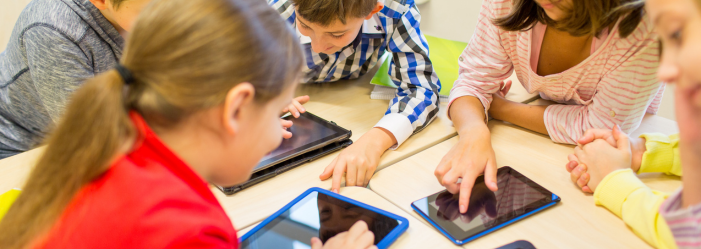In Celebration of Black History Month
In Celebration of Black History Month
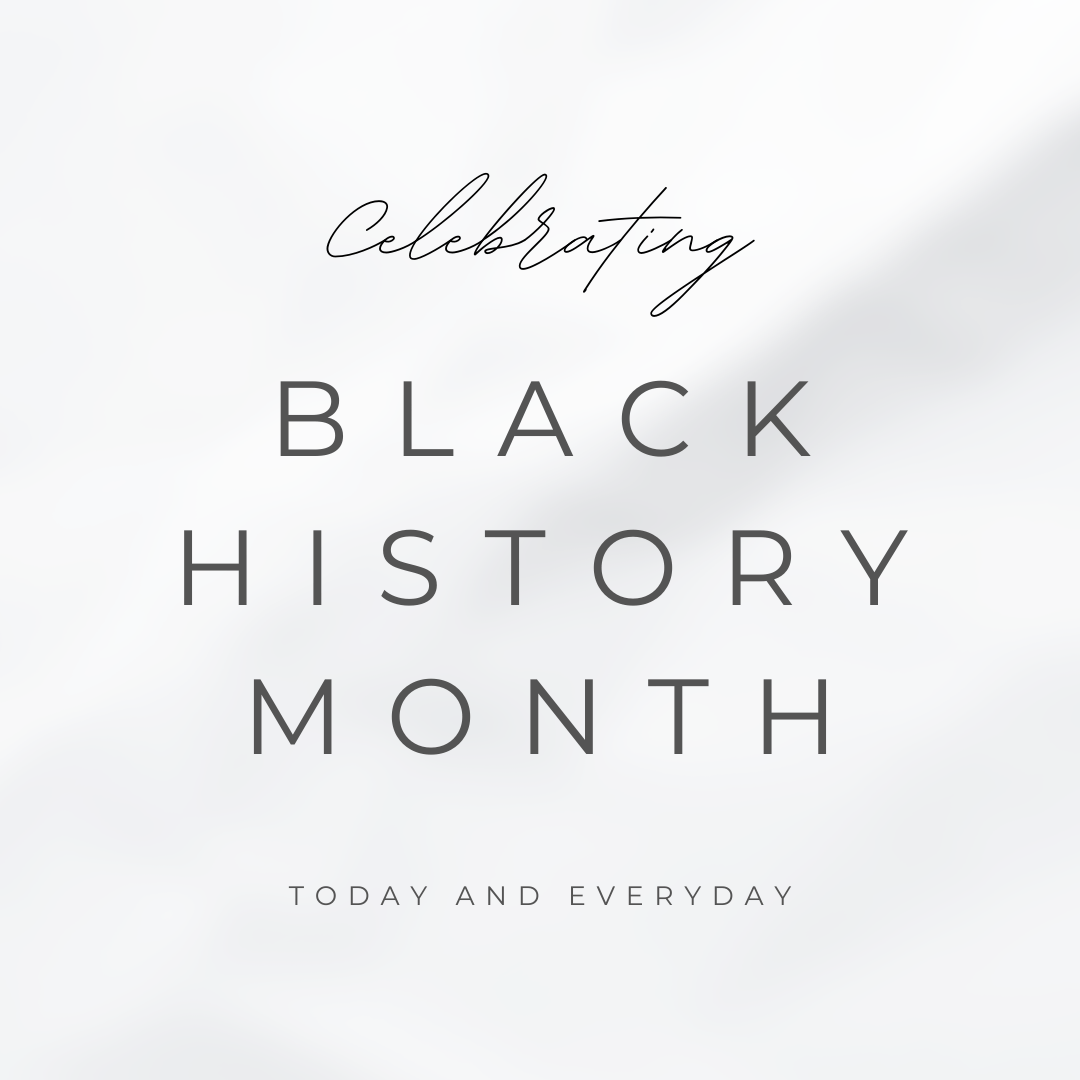
Taking the time to formally celebrate black history has roots that go back to 1926, when Carter G. Woodson suggested a week to honor the black experience during February. It wasn’t until 1976 that this became an official month.
It’s important to note several things: Black History Month should not be the only time we honor black Americans. This work should be ongoing and pervasive. Black History Month can be a good time to specifically honor black folks, and to remind us of all the work that still needs to be done.
When it comes to children, it’s never too early to start learning. Studies have shown that young children form ideas and opinions about race much earlier than many people think. Read on to learn more.
Recenter
Our entire culture in the United States (and many other countries around the world) is centered on the white experience. From the books we read, to the history we learn, the media we consume, and pretty much every other aspect of our society, perspectives of white people dominate.
This structure is harmful for everyone.
An important step in moving forward as a society is to center the people who have been historically (and presently) discriminated against. There are many groups of people that fall within this category, but for the purposes of this article we will focus on the black perspective.
Want to learn more about what this means? Siraad Dirshe explains.
Read
As you probably know, we believe reading to children is one of the best ways to teach and learn together. You might consider visiting your local library this month to check out some books to read together. It’s likely there will be a display waiting for you of books celebrating black history and culture. Here is one list.
Another important layer to consider: try reading books written by black authors. The same goes for if you choose to purchase books this month. The benefits are twofold: doing this provides you and your child with the most accurate information, and you’re also supporting the work of black artists financially.
Not sure where to start? Ask your local librarian or bookseller to point you in the right direction. Chances are they’ll be delighted to do so.
Listen
Let’s start literally. We like to make it an annual tradition to play Dr. King’s speech in January. Find it in its entirety here, along with a written transcript.
There are other ways to listen. If you’re white, we encourage you to really listen to the perspectives of black people. This will be uncomfortable. You may find yourself wanting to react in a variety of ways. Wait. Reflect. And listen. Be open to seeing things differently and shifting your perspective. Doing so not only enlightens you and your own knowledge, but it makes you an excellent role model for your child.
Learn
Have fun with your child and learn about African American culture and history. Here are a few suggestions:
- Cook together. Try these recipes for Southern Food with African Background.
- Visit a museum or explore one virtually. The National Museum of African American History & Culture provides plenty of online resources. Click here for children from birth - age eight, here for information on how to talk about race, and here for reading resources for children in grades 3-12.
- Learn about the origins of stepping and strolling, and watch some videos of performances (or a live performance if you’re lucky!).
- Explore the geography of the Civil Rights Movement, thanks to the National Park Service.
- Learn about and listen to music that is rooted in black history.
Extend
Supporting a worthy cause can feel good for everyone involved. As a sixth-grader, Marley Dias became frustrated with the lack of books with black girls like herself as main characters. So she started a campaign to find some. This has turned into a movement, with more than 11,000 books collected, many of which have been redistributed to other children who need them. To learn more or to participate, check out #1000blackgirlbooks.
It’s important that we all see Black History Month as a time for learning, reflecting, and reframing. This doesn’t mean that we should only celebrate and learn about black history each year during February, but it is a good time to reflect on what we have done in the past and would like to do moving forward.
Black history is American history, it’s just that it isn’t always represented fully, truthfully, or appropriately. As a society we have made progress, but there is still much work to be done. By educating ourselves and then guiding our children, hopefully that progress can continue to grow.


